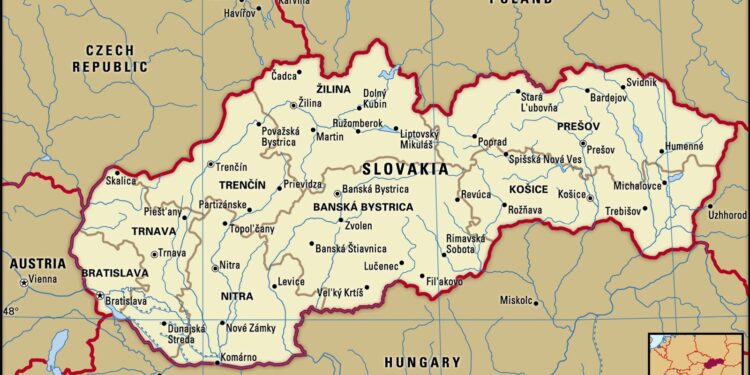Slovakia has invoked a recent move by the European Parliament to defend its controversial new legislation, which critics have likened to Kremlin-style media control. The government insists the bill is a legitimate tool aimed at curbing disinformation and safeguarding national security, aligning its approach with broader European efforts to counter malign influence. The legislation has sparked heated debate domestically and abroad, raising questions about the balance between press freedom and state security in the evolving information landscape.
Slovakia Backs European Parliament’s Kremlin-Style Bill as Legitimate Legal Framework
Slovakia has firmly aligned itself with the European Parliament’s recent endorsement of legislation styled after Kremlin’s regulatory framework, marking it as a legitimate legal instrument in safeguarding democratic institutions. This move reflects Slovakia’s growing commitment to adopting robust governance measures inspired by European-wide regulatory trends, aiming to curtail external interference and enhance transparency in political processes.
- Legislation is designed to increase scrutiny of foreign influence in local governance
- European Parliament’s backing cited as key validation for national adoption
- Measures aim to bolster resilience against disinformation and covert operations
| Aspect | Slovakia Position | European Parliament Role |
|---|---|---|
| Legitimacy | Defines as legitimate legal framework | Official endorsement and support |
| Scope | National implementation of Kremlin-inspired measures | Policy alignment and guidance |
| Goal | Protect sovereignty | Set pan-European standards |
Implications for EU-Russia Relations Amid Heightened Geopolitical Tensions
The recent endorsement of a Kremlin-style legislative approach by Slovakia, justified by referencing a similar stance from the European Parliament, marks a significant shift in the diplomatic landscape between the EU and Russia. This move signals a growing fracture within the EU itself, complicating the bloc’s unified front against Moscow amid ongoing conflicts and sanctions. Observers note that such legitimization could embolden Russia to further assert its political and legal narratives across Eastern Europe, challenging the EU’s cohesion on strategic and security policies.
The broader implications extend beyond legal symbolism, as this development may affect ongoing negotiations, energy dependencies, and security collaborations. The juxtaposition of EU institutions seemingly endorsing frameworks associated with Kremlin governance raises questions about Brussels’ capacity to maintain a balanced yet firm stance. Key areas at risk include:
- Sanctions enforcement – Potential fragmentation in policy application among member states.
- Energy transit routes – Increased vulnerabilities in gas supply chains.
- Intelligence-sharing agreements – Erosion of trust impacting counter-intelligence operations.
| Aspect | Potential Impact | Timeframe |
|---|---|---|
| Diplomatic Relations | Heightened tensions, reduced dialogue | Short to medium-term |
| Trade Sanctions | Risk of uneven enforcement | Medium-term |
| Security Cooperation | Weakened joint operations | Immediate to short-term |
Recommendations for Strengthening EU Legislative Measures Against Hybrid Threats
To counteract the multifaceted challenges posed by hybrid threats, the European Union must adopt a more cohesive and proactive legislative approach. Enhancing intelligence sharing between member states stands as a critical first step, enabling quicker identification and neutralization of covert Kremlin-style operations. Moreover, harmonizing sanctions and legal responses will reduce loopholes exploited by malign actors seeking to undermine democratic processes. Transparent investigative mechanisms and strengthened oversight bodies should also be prioritized to safeguard against disinformation campaigns and cyberattacks targeting vital infrastructure.
Key strategic recommendations include:
- Establishing a unified EU framework for defining and responding to hybrid threats, ensuring all member countries operate under common protocols.
- Investing in resilience-building programs that empower civil society and critical sectors to resist manipulation attempts.
- Enhancing public-private partnerships to secure communication networks and combat misinformation proactively.
| Measure | Impact | Implementation Timeline |
|---|---|---|
| Unified Threat Response Protocol | Streamlined cross-border cooperation | 12 months |
| Cybersecurity Investment | Improved infrastructure defense | 18 months |
| Information Transparency Laws | Increased public trust and awareness | 24 months |
Key Takeaways
As the European Parliament’s actions continue to influence legislative discourse across the continent, Slovakia’s invocation of the Kremlin-style bill underscores the widening impact of Moscow’s legal frameworks beyond its borders. This development highlights ongoing tensions within the EU regarding governance models and the balance between security and democratic principles. Observers will be watching closely to see how Slovakia navigates these challenges amid broader debates on sovereignty and European unity.
















